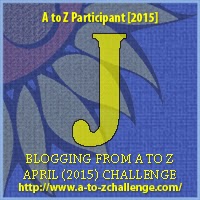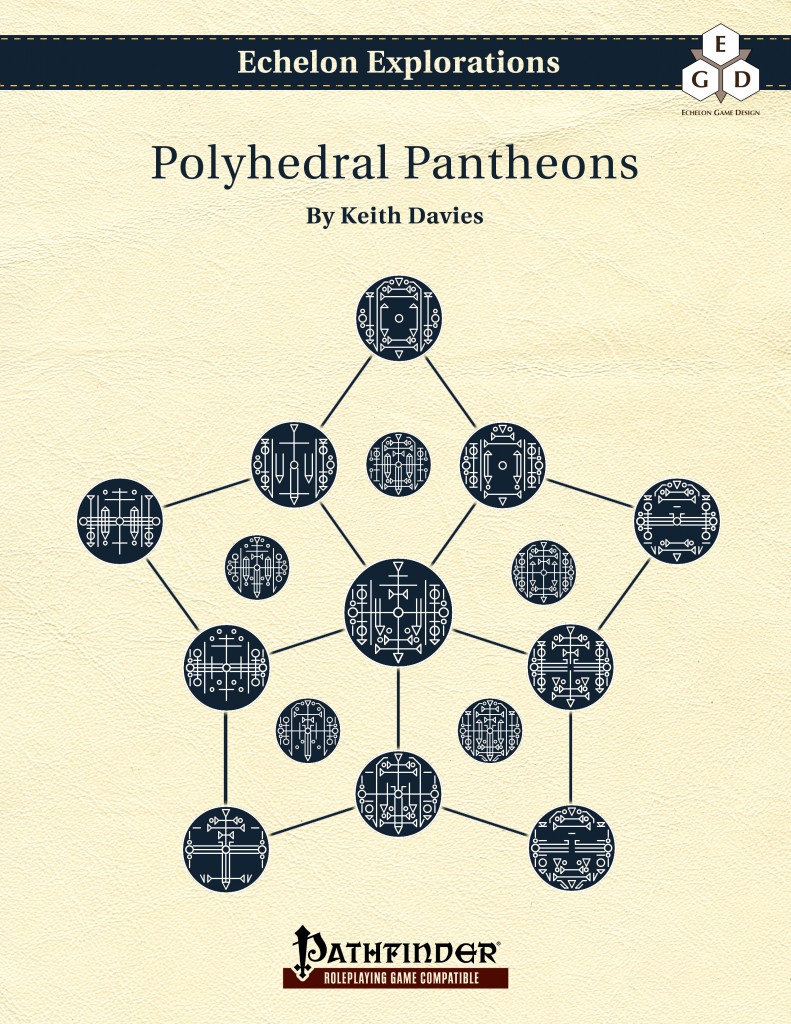I started writing about the jhesiri deities some time ago, but never finished. I found I had gotten into too much of a rut, and while a little bit of atrocity was fitting, it was too much. I wasn’t happy with what I’d written and basically abandoned it.
A few days ago I started the goblin pantheon over, changing some of the focus and emphasis on certain elements. I drafted the hilljack deities and felt pretty good about how they ended up, so I wrote a new set of deities for the jhesiri.
Zinicit is still pretty close to the original (Ramdzasha), but I caused the various aspects to diverge more from the original. Two of the aspects are deliberately sinister and use methods other than simple violence (Neplatny works to return the world to amorphia, primal chaos, while Vydirani works to socially and emotionally ruin victims). The remaining jhesiri deities are no longer willfully malicious, but instead represent other inherently destructive things: war, fire, weather, and dreadful, regrettable necessity.
Jhesiri Deities
The jhesiri are a violent, nomadic tribe of goblins that ranges the countryside, raiding and pillaging pretty much any settlement they think they can get away with. They will remain in a single place only a short time, until it falls apart too much or becomes too filthy with their discards even for them to stand.
Their primary deity is Zinicit, a bloodthirsty being who exults in the destruction of other races. Two of her aspects similarly embrace destruction, the others endure that part of their nature.
Zinicit
- Domains Destruction, Chaos, Evil, Travel, Weather, War
- Alignment Chaotic Evil
- Chosen Weapon Greatflail
- Symbol Six-headed flail, each head representing one of Zinicit’s aspects
This deity of destruction is thought to be primarily female, but it never been possible to tell for certain. Zinicit’s aspects are torn from the deity’s body at need, so the composition of what is left changes over time. There literally is no way to tell who, or what, is in Zinicit’s pants.
Zinicit has no shrines. When the deity needs a shrine or temple they simply destroy one belong to another deity and repurpose it. All of Zinicit’s ‘holy places’ are desecrated and defiled remains of other deities’ holy places.
Daily prayers are offered at the end of the day, either dedicating the day’s destruction to the deity or sacrificing, destroying, something personally valuable. Those who fail to do one or the other are likely to find a greater cost is demanded and collected.
Zinicit’s followers are simply known as jhesiri. Even those who have closer ties to one of this deity’s aspects ultimately belong to Zinicit.
Zinicit most often manifests in the form of one of the deity’s aspects, but in those infrequent cases where Zinicit openly appears it is a multi-headed jhesiri (number and identity of the heads depending on what aspects are present).
Neplatny
- Domains Chaos, Destruction, Strength, Trickery, Darkness
- Alignment Chaotic Neutral
- Chosen Weapon Shortsword
- Symbol Black shortsword dripping purple stars
This god of chaos wishes to, and is working to, reduce everything to primal chaos. Where Zinicit is malicious and enjoys the pain of others, Neplatny embraces and finds pleasure only the unending, roiling change found in amorphia.
Neplatny’s shrines are always in places of extreme weather. Storm-blasted heaths are a favorite, as are wave-torn coastlines. What altar is present is almost always well-worn and without ornamentation. Best are the remains of holy places formerly associated with other deities.
Daily prayers are offered at midnight, the change of one day to the next. And not coincidentally a usefully private time to make sacrifices when rational beings are sleeping in a safe place.
Neplatny’s followers are called Prazdny, ‘the Empty’, and almost all exhibit some degree of nihilism and strange detachment.
This deity manifests as a dead-eyed jhesiri dressed in dark purple and bearing a black blade.
Vydirani
- Domains Evil, Destruction, Air, Death, Knowledge
- Alignment Neutral Evil
- Chosen Weapon Poisoned dagger
- Symbol A severed hand holding a scroll bound with a black ribbon
While Zinicit’s sex cannot be determined because of how the deity changes, none have had an opportunity to observe clearly enough to discover Vydirani’s sex.
This is the most subtle of the jhesiri deities. Zinicit wants everything to smash, Neplatny wishes all to reduce to formless chaos, Muceni rampages about the world leaves victims in anguish. Vydirani finds ways to cause his victims to torment themselves. The deity blackmails targets with secrets, manipulation using vicious lies, hoping to see the victims shrivel in despair before they suicide.
There are few shrines dedicated to this Vydirani. Instead, most often the followers of Vydirani will insinuate themselves and infiltrate the holy places of other deities in order to spy on the unwitting followers of these other gods.
Daily prayers offered before sleeping, and are whispered (or written and concealed) secrets learned that day, and a litany of what might be done with them.
Vydirani’s followers are rudely referred to as Chamtivucho, “the Greedy Ears”. They of course know this, and enjoy how little the speakers truly know of it.
This deity manifests physically only rarely, but can be found in a hardly-heard whisper holding a secret the hearer does not want shared, or a message written in sand or water that blows away or dries up.
Potreba
- Domains Travel, Destruction, Fire, Death, Community
- Alignment Neutral
- Chosen Weapon Spear
- Symbol Bloody sack hanging from a spear
Potreba is the goddess of regrettable necessity. The perception of jhesiri as bloodthirsty marauders is A little misplaced. They mostly lack the resources (physical, mental, or emotional) to settle down as more civilized races might. The closest they can get is to group together so they can better act as ‘hunter-gatherers’ who prey on the most concentrated sources of what they need: other communities and civilizations.
This deity does not have permanent shrines of her own. As the followers of Zinicit do, her followers will desecrate captured shrines with the blood of their former users and use those before moving on.
Daily prayers are offered at dusk and recount the deeds of the day, and include blood offering if there was no other blood shed that day.
Potreba’s followers are called Sberac, ‘Gatherers’.
This deity manifests as a female jhesiri bearing a spear and a bloodstained sack with unpleasant contents.
Hurikan
- Domains Weather, Destruction, Trickery, Air, Water
- Alignment Neutral
- Chosen Weapon Chakram
- Symbol Six-armed spiral
This god of storms is not at all subtle, but at least is not actively malicious. Hurikan represents the sheer devastating force of the weather.
Hurikan’s shrines are typically built lightly so the remains can be picked up and easily reassembled at need, rather than daring to defy the deity’s power by being strong enough to withstand the storms.
Daily prayers are offered at dawn to greet the day and all the wind and rain and waves that will come.
Hurikan’s followers are known as Vichrice, “the winds”.
This deity manifests as a wind-swept jhesiri, or as an unexpected wind.
Valceni
- Domains War, Destruction, Strength, Fire, Earth
- Alignment Neutral
- Chosen Weapon Greatclub
- Symbol Fiery stone-headed greatclub
This goddess of war is not actively malicious, instead representing the violence and destruction inherent in warfare.
Her shrines are the remains of pyres and the gathered, shattered arms and armor of the fallen.
Daily prayers are offered at dawn, before embarking on the challenges of the day, and are an acceptance of the trials and possible harm to be suffered that day.
Valceni’s followers are called Vojak, ‘soldiers’. They are typically hard-bitten and stoic, too worn down by constant warfare to embrace anything but their goals.
This deity manifests as a battered, hard-used jhesiri with world-weary eyes and worn but well-maintained gear.
Pozarni
- Domains Fire, Rune, Travel, War
- Alignment Neutral
- Chosen Weapon Longbow
- Symbol Three arrows crossed, flaming
This goddess of fire and war is Valceni’s sister. She represents the dual nature of fire – useful tool, and devastating hazard – and the need for military movement at both the strategic and tactical level.
When needed she shares her sister’s shrines, but her followers all learn to improvise and create temporary shrines at need by carving the appropriate sigils on stone and setting fire over it.
Daily prayers are offered at dawn, looking for direction and guidance to what is needed. Pragmatic as any old soldier, Pozarni is not offended if her followers also use the fire for a brew up or to cook breakfast during prayer. She knows how often that can be a luxury.
Poznari manifests as a lean, weathered jhesiri in mottled brown and green bearing a longbow and fiery arrows.
Closing Comments
I am much, much happier with these results. The original jhesiri deities were almost a caricature of destruction and murder and torture and rapine. That was over the top and unnecessary, and I didn’t like writing them.
This set of deities is much better balanced. It is still generally sinister (leader is chaotic evil and destructive, two of the others either wish to see everything destroyed because he likes it that way or wish to reduce victims to suicidal despair — perhaps as a similarly unholy pleasure) but the bulk of the deities are almost not so bad. Still dangerous, still associated with inherently destructive things, but I think have a little more nuance and credibility.


Pingback: Hilljack Deities of the Goblin Pantheon | Keith Davies — In My Campaign - Keith's thoughts on RPG design and play.
Pingback: Kouzelnik Deities of the Goblin Pantheon | Keith Davies — In My Campaign - Keith's thoughts on RPG design and play.